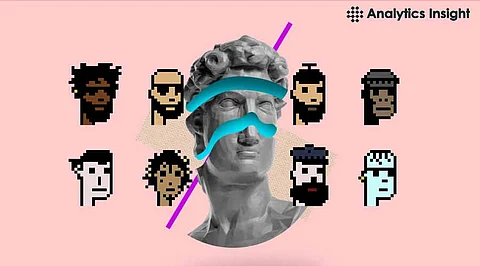

In the early days of non-fungible tokens (NFTs), the digital landscape was dominated by art and collectibles, with high-profile sales grabbing headlines and drawing in a wave of enthusiasts and investors. But the world of NFTs as of now is different. There is a growing category of utility NFTs, which is broadening the options for applications beyond the common ones. While most token collections have artistic or rarity value, utility NFTs provide functional use cases and opportunities. They align themselves with different business sectors like games, finance, property, or events.
Utility NFTs can be best described as novel tokens built with characteristics of everyday utility. These NFTs may grant access to exclusive content, virtual items in games, memberships, digital services, or even real-world assets and experiences. This transition from owning a collectible to an everyman’s utility NFT is a giant leap in using Blockchain solutions for daily life.
For instance, a ticket to a specific concert is an NFT. Not only is it a receipt for entry, but it could be a souvenir, a pass backstage for the next event, or a voucher. This added layer of functionality gives the NFT practical value, expanding its appeal beyond speculative investors.
The use of Utility NFTs is best traced in gaming industries. Temporary items such as weapons, skins, or characters are most of the time-limited within the game. In the environment of NFTs, players own their resources and can purchase, sell, or exchange assets to different platforms or games. This kind of usage has been made famous by games such as Axie Infinity and The Sandbox which allows for NFT assets for playing and transferring out of the games.
Real estate is another industry that sees utility NFTs as a potential game-changer. By tokenization, NFTs want to make it possible for individuals to invest in real estate through NFT ownership but without direct full ownership of the property. Imagine buying a fraction of an expensive real estate as an NFT that gives the owner rights to part of the earnings. This approach decompartmentalizes the real estate and makes entry into this market easier for individual investors.
NFT-based ticketing solutions are poised to tackle problems like counterfeit tickets and scalping, which have plagued the events industry for years. With an NFT, ticket holders have proof of authenticity, and organizers can add unique features like loyalty rewards or access to exclusive perks for attendees. Moreover, the resale limitations can be coded into the NFT form, limiting the influence of the resale market, and ensuring tickets to genuine fans.
In the DeFi industry, utility NFTs allow users to receive interest on accounts, staking incentives, or even rebates on select financial services. Through incorporating utility NFTs within DeFi, investors could enjoy several choices in solving the problem of owning assets and getting financial opportunities at the same time.
While the potential for utility NFTs is immense, several challenges need to be addressed. One major concern is scalability. As NFTs continue to grow in popularity, blockchain networks face limitations in handling high transaction volumes, leading to high fees and slower processing times.
Another challenge is interoperability. For utility NFTs to reach their full potential, they must be compatible across different platforms and ecosystems. Currently, most NFTs are limited to specific blockchains or platforms, restricting their use cases. Still today most of the NFTs are inherently tethered to certain blockchains or platforms, thus defining their applications.
NFT is still in the early phase of development, and there is a concept of cross-chain integration to allow NFT that exists in one blockchain network to be easily transferred to another blockchain network.
The rise of utility NFTs signals a broader adoption of blockchain technology in practical applications. The expansion of NFTs beyond art and collectibles reflects a growing recognition of blockchain’s potential to revolutionize industries.
As utility NFTs gain traction, more industries are likely to explore how these digital assets can bring value to consumers and businesses alike. With applications in sectors ranging from entertainment to finance, utility NFTs could be instrumental in driving mainstream blockchain adoption and redefining the way we think about ownership, access, and digital identity.
The utility NFT movement represents a transformative phase for the NFT space. Beyond digital collectibles and speculative trading, utility NFTs offer functional benefits that cater to everyday needs, from investment and gaming to ticketing and membership. As this trend continues, utility NFTs are likely to play a significant role in shaping a new, decentralized digital economy that prioritizes user ownership and control.
